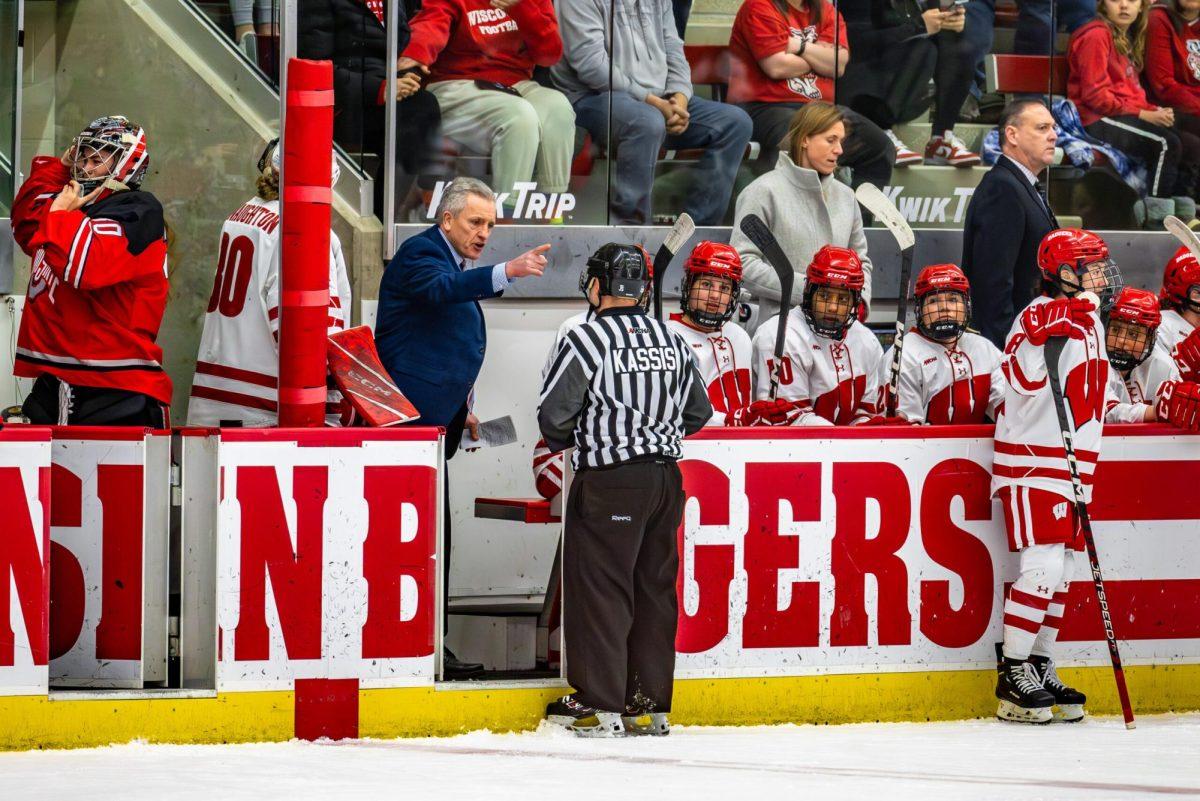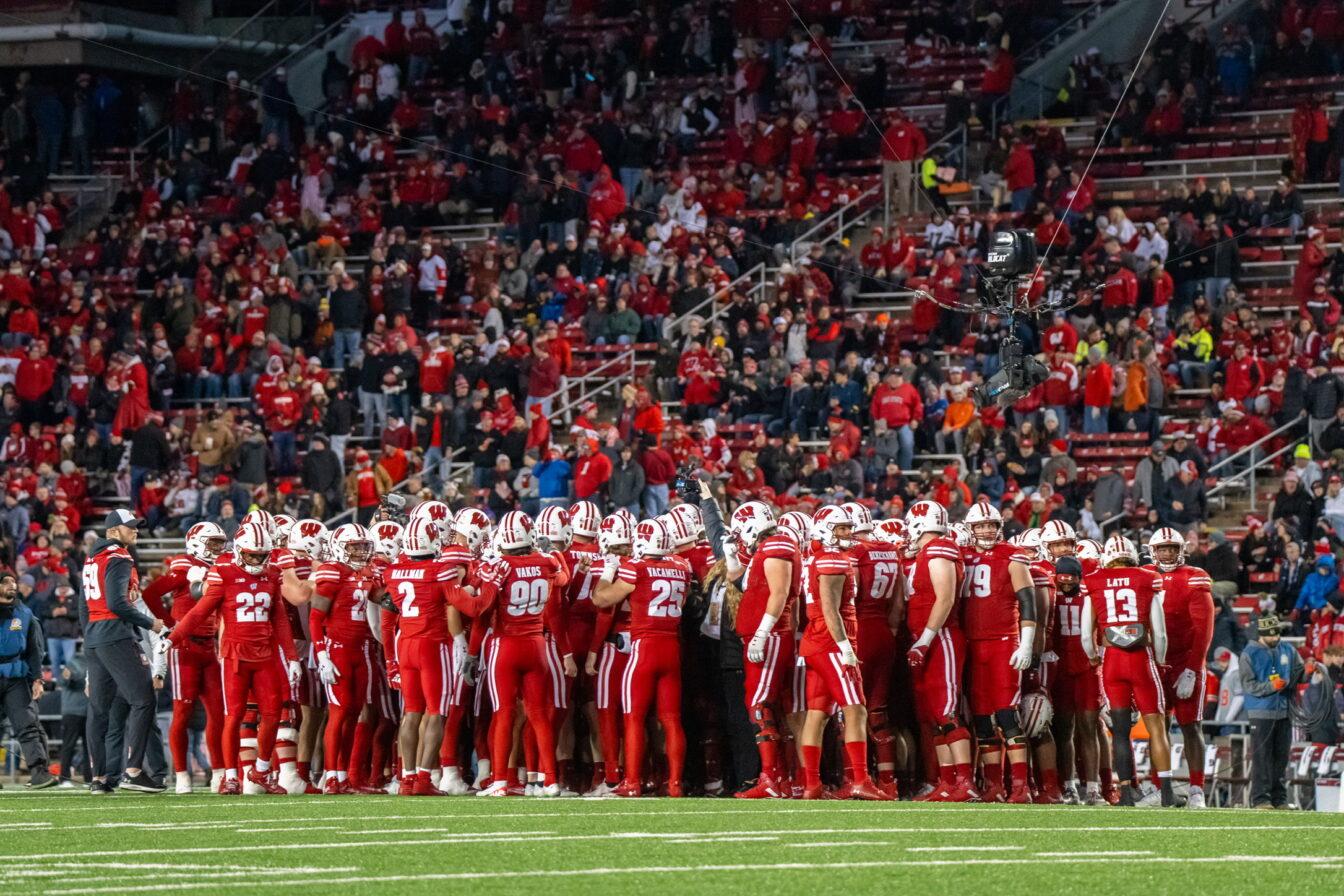Most people take advantage of the holiday season as a chance to sneak themselves a long-needed break. People go away, visit relatives, sip eggnog by the fire and let Dick Clark count them down into the new year.
Mike Eaves was no exception to this rule, allowing himself to slip out of his demanding role as the head coach of one of the nation?s four finest college hockey teams for a while at least. But there was no relaxing to Dick Clark and eggnog for Eaves. Instead, he traveled halfway around the world and helped bring United States ice hockey to a new level of prestige.
Eaves, along with Badger freshmen Ryan Suter, Jeff Likens and Jake Dowell, took his winter break in Finland. Eaves served as head coach and led the three young Badgers, along with 19 of the best players under the age of 20 from around the country, as the United States took the gold medal in the International Ice Hockey Federation?s World Junior Championship.
Coaching at the national level wasn?t a new challenge for Eaves, who spent part of his career building a program in Ann Arbor, Mich., designed to help young U.S. players develop into the type of talents that could compete on just this sort of stage. While the program had the United States knocking on the door of worldwide regard, until this year the best Team USA had managed in the tournament?s 28-year existence was a silver medal.
?Winning is a huge step for us,? Eaves said. ?It really gives our developmental program over in Ann Arbor some credibility because it was designed to do exactly this. It was designed to take rising players and put them in a situation where they can grow and develop and eventually take on the highest levels of international competition. It?s been an eight-year process to get to this point, and it?s proven worthwhile in the end.?
While the program?s success is now undeniable, it wasn?t inevitable. For years the United States has been close to this type of achievement. But world competition is stiff and the World Juniors is competed over fiercely.
?It?s such a hard tournament to win,? Eaves said. ?Even if you have the talent and you have all the right ingredients, there?s no guarantee you?re going to win the darn thing.?
The U.S. team got off to a rough start, being out-performed by host Finland in a 4-1 exhibition loss. But when tournament play began, Eaves? squad took care of business.
In the qualifying round Team USA mopped up competition, out-scoring its opponents 21-4 in four games. Goaltender Al Montoya, from the University of Michigan, posted a tournament-best save percentage in those games, stopping more than 95 percent of the shots he faced.
?After he got the first two games under his belt, I saw him become more confident,? Eaves told the media. ?In the first couple games he kept it at a low level because he was focusing on getting comfortable in the crease. But after that, he started to have more confidence.?
He continued, ?The biggest part of a goaltender?s equipment may be that confidence factor, and that certainly rose. By the end of the tournament his stock went way up.?
After squeaking out a 2-1 victory in a rematch with Finland in the semifinals, Team USA was set to meet traditional junior powerhouse Canada. The Canadian team, behind brilliant play from goaltender Marc-Andre Fleury, had simply dominated its competition on the way to what it seemed would be an easy 11th gold medal at the World Juniors.
?They had high expectations, and rightfully so,? Eaves said of the Canadian team. ?They have great hockey players up there. They expect to get the gold. When you have high expectations, you know what? Oftentimes they become a reality.?
Canada had yet to win a game by fewer than three goals and had blown out a very tough Czech team 7-1 in the semifinals. So, when the team jumped out to a 3-1 lead in the first two periods of the gold-medal game, it may have been a lost cause for Team USA. Fleury, arguably the top hockey prospect in the world right now, had not allowed more than two goals yet in the tournament.
Defenseman Jeff Likens admitted his uneasiness in the situation.
?I was sitting in the locker room between periods,? he said, ?just thinking to myself, ?We?ve got to go out there and find a way to score three goals against one of the best goalies in the world.? But there wasn?t a doubt in my mind that I was playing with the most talented group of players in the world and if anyone could do it, this was the team.?
Led by an improvised line that featured Patrick O?Sullivan, who lived with the Eaves family for two years, and Eaves? own son Patrick, the U.S. team miraculously scored three unanswered goals and rallied to a devastating comeback win over the Canadians. O?Sullivan scored two goals in the final period, including the game winner with just over five minutes remaining.
Eaves was impressed with the maturity shown by the silver medalists after their upset. ?The Canadian group handled themselves very well. They shook our hands firmly, looked us straight in the eyes and congratulated us. That hurts; I?ve been in that situation. Every athlete has at one time or another been in that situation.?
While Eaves said he felt a responsibility as a coach to keep his own excitement under wraps, he admitted how proud and happy he was for his son and the other players with whom he has grown close.
?We?re going to be telling their kids — we?re going to be telling my grandkids — stories about Finland down the line,? he said. ?That?s pretty amazing.?
Suter had a similar reaction: ?It didn?t really even occur to me what had happened until the medal was around my neck,? the freshman star admitted. ?Everything seemed so fast there at the end, it was overwhelming. I knew it was something I?d be telling my kids about someday.?
Suter is no stranger to stories of international hockey conquest. Ryan?s father, Bob, was an integral part of the U.S. team that made a miracle run through the Olympics in 1980. He said that his father?s stories were part of what made it so special for him to get to play and win in a similar situation.
?Anytime you get the chance to go and do something like this for your country, it?s got to be worth it,? Suter said. ?Anytime you get the chance to go and do something this big — something you?re going to be telling people about for the rest of your life — that?s pretty amazing.?
Whether this fish will become as big over the years in Ryan?s tale-telling as the one his father caught in Lake Placid almost 25 years ago grew to be, this victory is undoubtedly an enormous stride forward for U.S. hockey.
?This is such a big step for junior hockey here,? said Suter. ?It really puts the U.S.A. on the world junior-hockey map.?













